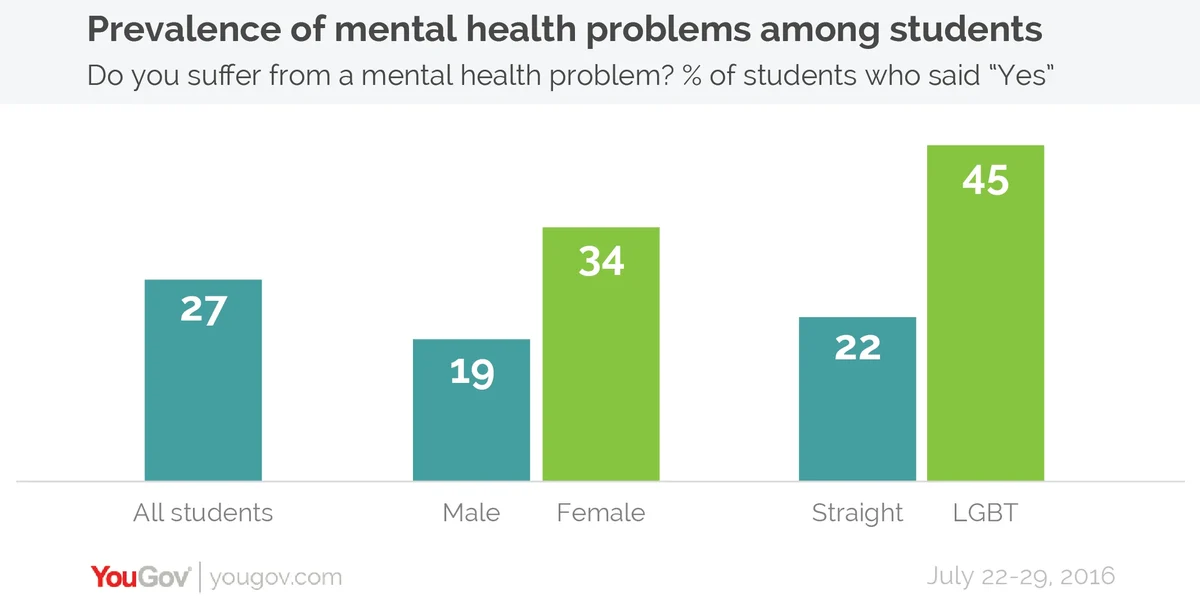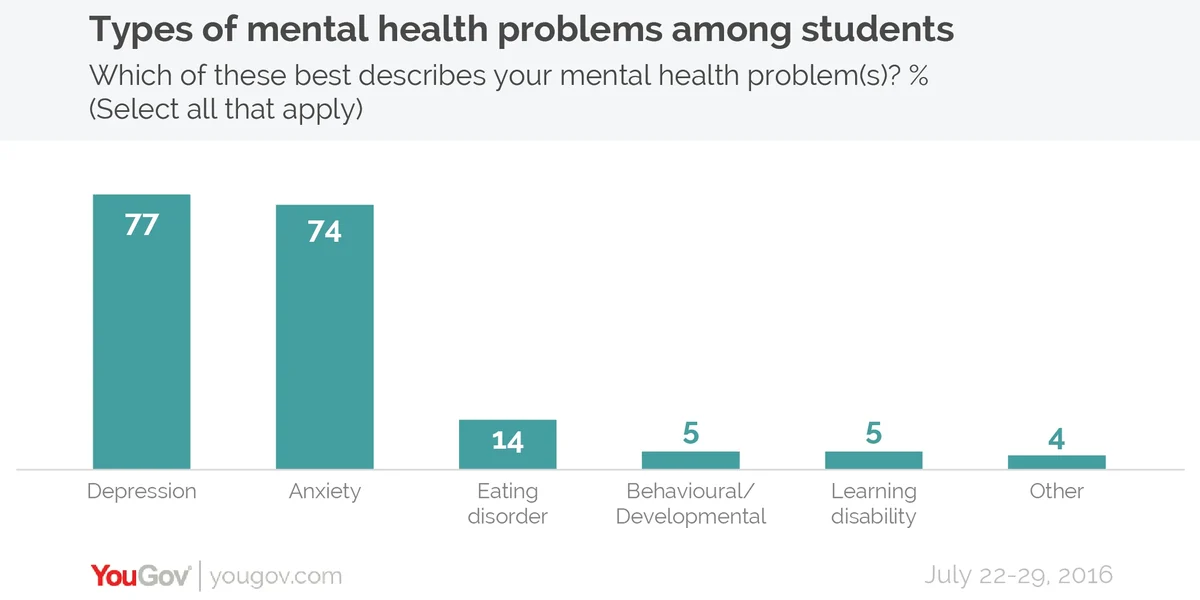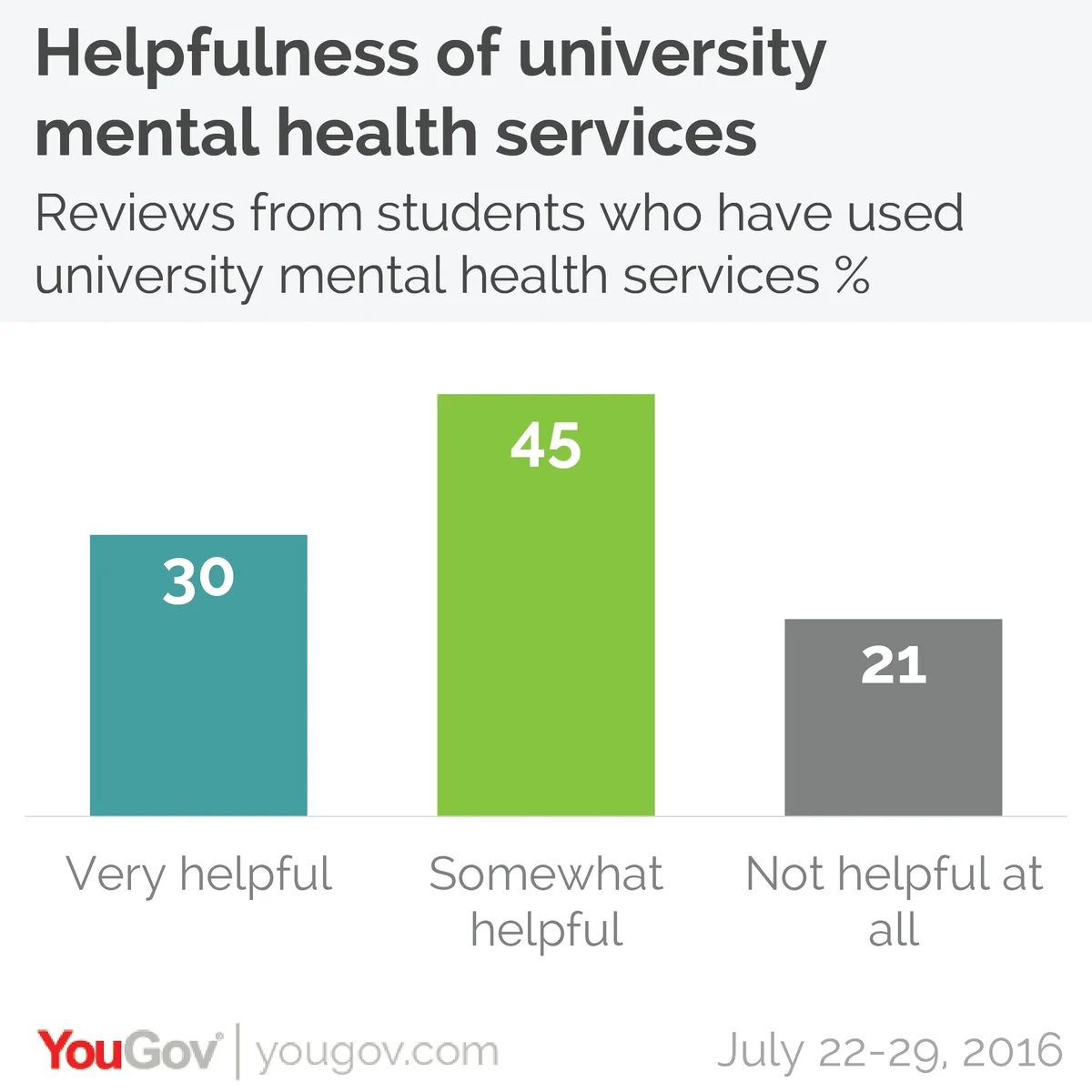Stress and anxiety are making day to day life difficult for hundreds of thousands of students
The extent of mental health problems in UK universities has been laid bare in a new YouGov survey of Britain’s students. More than a quarter of students (27%) report having a mental health problem of one type or another.
Female students are more likely to say they have mental health problems than males (34% vs 19%), and LGBT students have a particularly high likelihood of mental health problems compared to their heterosexual counterparts (45% vs 22%).

For a significant proportion of students who report mental health issues, these problems can make even day-to-day tasks difficult. Nearly half (47%) say that that they have trouble completing some daily tasks and a further 4% say they cannot complete even simple tasks.
Depression and anxiety are by far the most common reported mental health ailments. Of those who suffer, 77% have depression-related problems, and 74% have anxiety related problems. Worse still, for many of these students it is common for students to be afflicted with both at once – 74% of students with an anxiety-related problem also have a depression-related one. These two issues dwarf all the rest, with eating disorders being the next most common at 14%, followed by behavioural or developmental issues at 5% and learning disabilities, also at 5%.

Anxiety and stress are commonplace among students, and the effects are often obstructive. Six in ten (63%) students say that they feel levels of stress that interfere with their day to day lives. Additionally, 77% of all students report that they have a fear of failure, with one in five of these saying that this fear is very prevalent in their day to day life.
Perhaps unsurprisingly, study is the primary cause of stress among students. Seven in ten (71%) say that work from university is one of their main sources of stress. The next biggest concern for students is finding a job after university (39%), followed by their family (35%). Jobs and relationships (23% each) and friends (22%) account for the majority of the other sources of stress.
Help is on hand
Fortunately, students are broadly aware that mental health services are provided by their university. Three quarters of students were aware that their university had a counselling service they could access. Only 14% weren’t aware of any services available to them.

Nearly one in five (18%) of students have already made use of university mental health services, the vast majority of whom (89%) had visited a counsellor. Satisfaction levels are relatively high, with 30% saying that they found the service very helpful and a further 45% saying it was somewhat helpful.
There is much room for improvement though, with one in five (21%) said that it was not helpful at all. Additionally, half of students who have made use of university mental health services also make use of professional health through other means.
Students accept that mental health is a real issue
For students who are suffering from mental health issues, it will hopefully provide a crumb of comfort to know that their peers are aware of and accept their mental health problems.
More than half of students (52%) know between one and five people that suffer from a mental illness, whereas just 8% know no-one with mental health problems.
And whereas in days gone by the seriousness of mental health problems might be trivialised, this is no longer the case. The overwhelming majority of students (84%) accept that mental illness is as serious as physical illness. Just 6% felt that physical ailments were more serious than mental ones (a further 5% felt that mental illness was more serious).
Students are also sympathetic to mental health sufferers. Upon finding that a person had mental health problems, the vast majority of students (74%) say that they would show concern and be mindful of that person’s troubles. A further 19% say that they wouldn’t react as it wouldn’t change how they saw that person, whilst a mere 3% say that they would be more cautious around a person with mental health issues.
Photo: PA
Save






